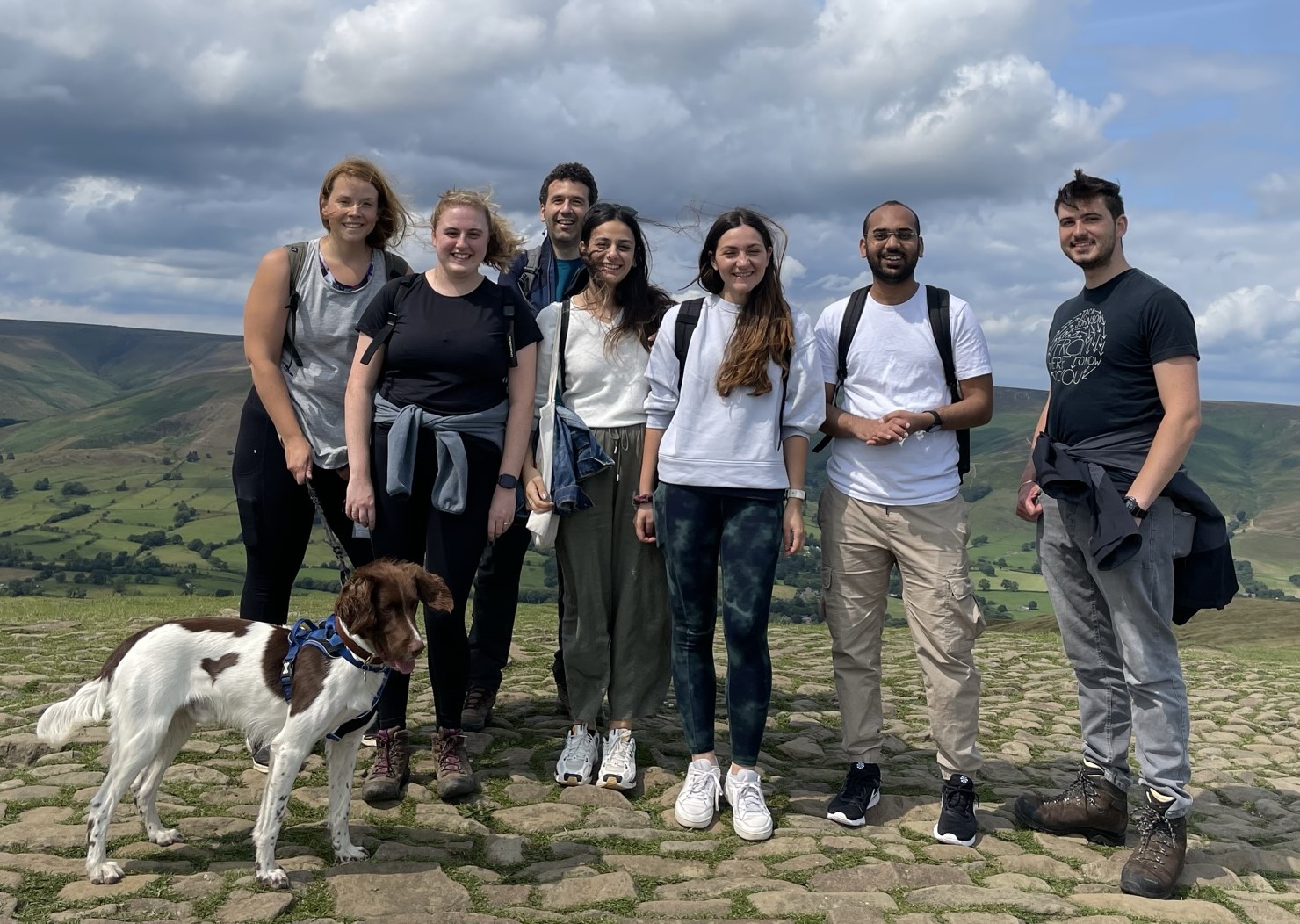Little Princess Trust News
Three cutting-edge projects funded into childhood neuroblastoma

Greater understanding wanted to find better and kinder treatments
The Little Princess Trust has just funded three new childhood cancer research projects that aim to improve our understanding of neuroblastoma, a type of cancer that affects nearly 100 children per year.
Researchers do not fully understand how and why neuroblastoma develops, making this a key research priority to allow work into better and kinder treatments.
Neuroblastoma is also complicated and difficult to study, because there is so much variation between patients.
One feature that is common for neuroblastoma, is that the cancer cells have errors with their chromosomes, the structures that store a cell’s DNA. Gaining or losing bits of chromosomes causes genetic mutations that can contribute to cancer cell growth and progression.
New LPT grant-holder, Dr Anestis Tsakiridis wants to understand more about how chromosome errors and a gene called MYCN help cancer develop in his project, titled 'What happens in cells to make neuroblastoma develop and how can we stop this?'

His team at the University of Sheffield, in collaboration with Prof Helen Bryant (CoI), will examine how the extra bits of chromosome and excess MYCN proteins work together to promote the 'conversion' of normal early cells into cancer cells in neuroblastoma and in another type of MYCN-driven cancer, called medulloblastoma.
Anestis also wants to find out why cancer cells get extra bits of chromosomes, whether they help the cancer cell to survive, and which treatments could be most effective based on their findings.
We hope our work will improve our understanding of the causes of two paediatric cancers affecting the nervous system.
Anestis said: “There are currently no models we can use to study how MYCN and chromosomal abnormalities transform normal cells into cancer cells.
"In this project, we will be developing and using a novel stem cell-based model to help us address this.
“We hope that our work will improve our understanding of the causes of two paediatric cancers affecting the nervous system: neuroblastoma and medulloblastoma.”
He hopes that this project will increase understanding of how these cancers grow in children and that it will lead to the development of new therapies.
Professor Suzanne Turner and Dr Perla Pucci at the University of Cambridge also want to understand more about how neuroblastoma develops and progresses in their new project, titled 'Understanding what the red flags are in aggressive neuroblastoma to improve and develop treatments'.
Whilst most childhood cancers have a number of genetic mutations present, neuroblastoma has relatively few.
.jpg)
This means that there are likely to be differences in the way cancer cells read and use their DNA in order to survive and spread. These differences are known as ‘epigenetic changes’.
Perla said: “Our research aims to characterise epigenetic changes in models of aggressive neuroblastoma and to investigate their association with disease features, such as factors that are known to indicate poor outcomes or how the cancer cells respond to different treatments.
“We have previously shown that proteins regulating epigenetic changes are overexpressed in neuroblastoma models that are resistant to targeted therapy, and that removing these proteins could be a way to treat aggressive treatment-resistant neuroblastoma.
"Some of the medicines that can do this are already approved for use in patients, so our new Little Princess Trust project provides an exciting opportunity to help take our work on epigenetic changes one step closer to a treatment for these young patients.”
Suzanne and Perla will assess patient tumours and blood for the presence of important epigenetic changes.
If they can see changes in the blood that they know are linked to certain outcomes, such as an increased chance of relapse, this could help doctors know which treatments to use.
Ultimately, the researchers hope to have developed a blood test to monitor how children respond to treatment and determine how aggressive their tumours are as well as having identified medicines that can counteract epigenetic changes.
Professor Juliet Gray is working on a new treatment for neuroblastoma in her project, titled 'Developing a kinder and more effective immunotherapy for neuroblastoma'.
Immunotherapy for neuroblastoma currently uses antibodies that are made in the lab to hunt down a molecule found on neuroblastoma cells, called GD2.
However, these man-made antibodies also can cause severe nerve pain because they will attack anything with the GD2 molecule, which can also be found on nerve cells.

Juliet is working at the University of Southampton to develop a new type of immunotherapy by modifying the current anti-GD2 antibody.
If we can make immunotherapy more effective, the hope is that we could then spare children from having more toxic treatments.
She said: “In this project, we hope to develop a safer and more effective antibody by engineering current antibodies to target a second molecule found on neuroblastoma cells, as well as the standard GD2 molecule.
"This will make our antibody able to more specifically attack cancer cells. We will also modify the antibody to more powerfully attract immune system cells that can kill the cancer.
“We hope that, if successful, our work could be translated into a new treatment for children with neuroblastoma.
"If we can make immunotherapy more effective, the hope is that we could then spare children from having more toxic treatments, such as high dose chemotherapy.”
The researchers hope that their three-pronged approach to immunotherapy will be safer and more effective, leading to fewer side effects and more children being cured.
Latest Posts
The four key steps to knotting the perfect wig
New book reveals reality of a child’s cancer diagnosis
How can we help children and young people with bone cancer?
Charities join forces for Teenage and Young Adult Cancer Awareness Month
Natalie Dormer donates her locks to help children with hair loss



